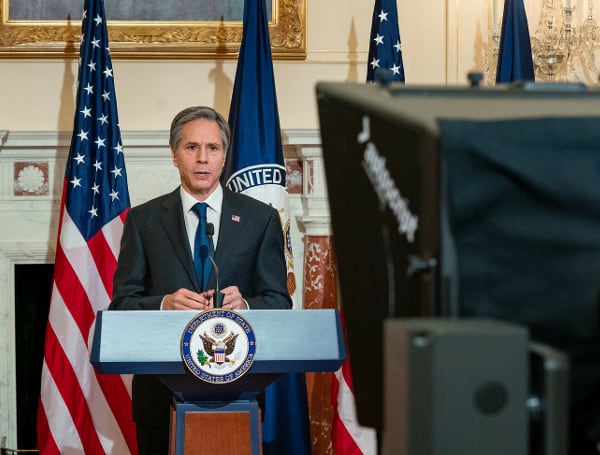U.S. Secretary of State Antony Blinken held high-level meetings on December 12 and 13 with officials from Turkey and Iraq to address the escalating situation in Syria, focusing on maintaining stability and countering the resurgence of ISIS.
Blinken met with Turkish President Recep Tayyip Erdogan and Foreign Affairs Minister Hakan Fidan in Ankara to urge Turkey to exercise restraint in northeastern Syria. Turkey has intensified its operations against the Kurdish-controlled, U.S.-backed Syrian Democratic Forces (SDF), following the Turkish-backed Syrian National Army’s (SNA) offensive, which began on November 30. The SNA captured Tel Rifat, a strategic location north of Aleppo, on December 1.
READ: Rep. Chris Smith, Local Officials Address Unexplained Drone Sightings In New Jersey
Turkey views the SDF as synonymous with the People’s Protection Units (YPG), which Ankara associates with the Kurdistan Workers’ Party (PKK), a group designated as a terrorist organization by Turkey, the U.S., and the European Union. Foreign Minister Fidan reiterated Turkey’s objective to dismantle the YPG and other groups Turkey considers a threat, stating that these forces must vacate Syrian territory.
In Baghdad, Blinken met with Iraqi Prime Minister Mohammad Shia al-Sudani to discuss regional stability and Syria’s future governance. Blinken emphasized the importance of forming an inclusive, nonsectarian government in Syria to prevent the country from becoming a haven for terrorism. Both leaders highlighted ongoing efforts to curb ISIS’s resurgence, with Iraq bolstering its border security following the SNA’s offensive in late November.
READ: Virginia Governor Youngkin Pushes For Sanctuary City Ban Amid Migrant Crisis
Iraq’s Popular Mobilization Forces (PMF), a coalition of state-sanctioned militias, vowed to confront any threats to Iraq’s security. PMF Chairman Faleh al-Fayyadh emphasized the group’s readiness to address challenges stemming from Syria.
The SDF, a coalition of Kurdish and Arab forces supported by the U.S. in the fight against ISIS, is grappling with two significant threats: internal fragmentation and Turkish military pressure. Recent defections from Arab communities in Deir ez-Zor and Raqqa have strained the Kurdish-Arab alliance within the SDF. Turkey’s heightened aggression, including threats from Foreign Minister Fidan to “eliminate” the SDF and affiliated groups, further undermines the coalition.
As a result, the SDF has deprioritized its counter-ISIS operations, shifting focus to addressing these existential threats. This pause in counter-ISIS efforts raises concerns about the potential for ISIS to regroup and exploit the vacuum, leaving the U.S. without a reliable partner in the region.
READ: Op-Ed: Former Florida AG Pam Bondi Will Clean Up The DOJ And Bring Back Justice For All
The halt in counter-ISIS operations and the fragmentation within the SDF pose risks for U.S. objectives in Syria. Without a unified and effective partner on the ground, efforts to contain ISIS and ensure long-term stability in the region face significant challenges.
As tensions escalate, Secretary Blinken’s meetings underscore the need for coordinated international efforts to address the complex dynamics in Syria and prevent further destabilization in the region.
Please make a small donation to the Tampa Free Press to help sustain independent journalism. Your contribution enables us to continue delivering high-quality, local, and national news coverage.
Connect with us: Follow the Tampa Free Press on Facebook and Twitter for breaking news and updates.
Sign up: Subscribe to our free newsletter for a curated selection of top stories delivered straight to your inbox.

